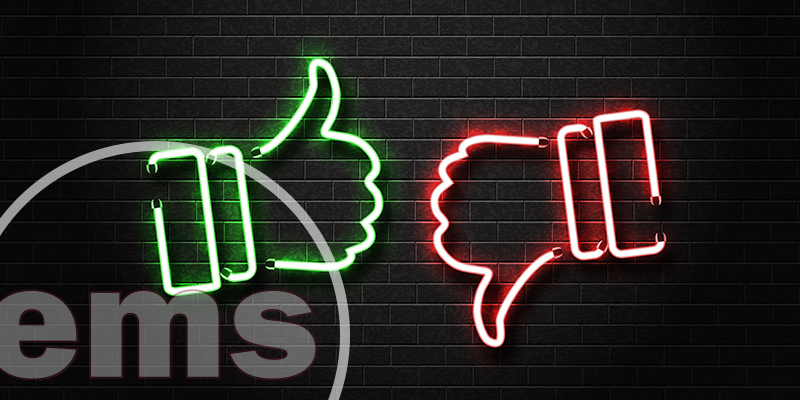It’s often a good idea to create an HOA social media account. Social media is an easily accessible tool for communication. But, homeowners associations must understand both its benefits and downsides before proceeding. They must also craft an HOA social media policy to avoid liability.
What Is the Purpose of HOA Social Media?
HOA social media is mainly used as a form of communication. With it, the homeowners association can disseminate important information and make announcements quickly. HOAs can also use it to build the type of community they want. They can post content with photos and foster a sense of community online to complement their offline activities.
The Benefits of HOA Social Media
What are the benefits of creating social media accounts for your HOA? Here are some advantages homeowners associations should take into account.
 Instant Communication
Instant Communication
Social media is great for instant communication. HOA board members can quickly post announcements and coordinate events. The board members can even do so while they’re out, as social media apps are easily accessible on smartphones. Moreover, community members likely use social media often so they can instantly consume the content as well.
Easy Feedback
Before the internet age, homeowners associations could only get feedback from the community through feedback forms, but that has changed with the advent of social media. HOAs can now seek and receive community feedback anywhere, anytime. Homeowners associations can also receive all types of feedback, from comments to reactions and shares.
Accessibility
Social media accounts make the HOA instantly accessible to its community members. It’s also a wonderful way to showcase what the HOA offers. Homeowners associations can see even better results when their social media accounts are combined with their website.
The Downsides of HOA Social Media
Social media is almost indispensable to communication. But, it’s important to understand that there are disadvantages to using them. Here are some downsides to HOA social media.
Legal Claims
Depending on the content, community members can make claims against the HOA for harassment, breach of confidentiality, invasion of privacy, and discrimination. The most common claim against HOAs is libel, as social media posts can be considered defamation.
Undermining Rules and Positions
Community members may use social media to challenge the HOA’s rules, positions, and regulations. They can freely voice their opinions and objections online. But, inconsistent, inaccurate, and incomplete posts can negatively impact the association long-term. That’s because they can encourage more community members to violate community rules and disregard board positions. These can lead to conflict and instability in the HOA.
Poor Community Well-Being
Social media encourages free speech and communication. This can harm the community’s well-being when it leads to open conflict or faction wars. Furthermore, members can even damage the HOA’s reputation when posting baseless negative comments. As a result, the HOA may face unwanted litigation.
What does this mean for community members? Can an HOA sue you for social media posts? Yes, the HOA may be able to sue for defamation, depending on the context. But, while this action may protect the HOA, litigation is never good for a community’s reputation. That’s because it can dampen an HOA’s sense of community and disrupt the fabric of the neighborhood.
What Is the Best HOA Social Media Platform?
If the community needs something accessible, we recommend creating an HOA Facebook page. This is because Facebook has over 2.9 billion active users monthly. Hence, many residents will likely already have an account to access announcements and updates.
HOA Board and Social Media: Crafting an HOA Social Media Policy
HOA social media has its advantages. But, HOAs should also stay wary of its pitfalls. To prevent any mishaps, crafting a good social media policy is vital.
1. Determine Permitted and Prohibited Content
 Board members should discuss what to permit and prohibit on social media. They should only allow posts related to the community or association. For example, posts can be about community event details, HOA rule updates, meeting dates, or due deadlines.
Board members should discuss what to permit and prohibit on social media. They should only allow posts related to the community or association. For example, posts can be about community event details, HOA rule updates, meeting dates, or due deadlines.
In addition, the board should consider posting links to the HOA’s governing documents to keep the community informed. Apart from these, HOAs can also post other content that the community might be interested in. Some examples include community event photos, polls, and blogs about home maintenance.
Furthermore, board members should strictly regulate what’s prohibited on their social media accounts. HOAs should consider limiting or prohibiting the following content:
- Offensive, violent, defamatory, discriminatory, or profane
- Deliberately made to attack, abuse, threaten, harass, or intimidate
- Confidential content like vendor contracts or proprietary business information
- Click-bait posts
- Spam content
- Sexual content
- Personal information
- Copyrighted or trademarked content
- Photos of kids without parental consent
- Promotional advertisements for brands, individuals, or products/services
- Community gossip
- Rants
- Unhelpful or baseless criticisms
- Personal opinions (such as political bias) made to represent the HOA’s views
2. Establish Penalties for Violating Content Policy
Community members that violate the social media content policy should face the consequences. Hence, the HOA can reserve the right to do the following:
- Delete the violating comment or post without prior notice
- Revoke the violator’s right to post or comment in the group
- Remove the violator from the group or page
3. Understand the Law
Board members often think that social media management is limited to understanding how the platform works and what to post, and it’s also a part of their responsibility to understand relevant laws. For example, the Federal Communications Decency Act dictates that the HOA can be liable if someone representing the HOA posts discriminatory or defamatory statements. Thus, the board should be strict about the content the HOA posts or comments online.
In addition, homeowners associations should refrain from sharing private or copyrighted content. This can complicate relationships and even lead to litigation. Moreover, HOAs should always consult their attorney to review the social media policy and ensure they are not violating any laws.
How to Be Effective: Social Media Tips for HOAs
Apart from establishing an HOA social media policy, communities should also consider these best practices to manage social media accounts smoothly.
1. Use Only One Platform
Consider using only one platform. This will allow HOAs to track social activity and engagement easily. It also saves time, as board members don’t have to post on multiple channels simultaneously. Moreover, it can limit confusion as homeowners will know where to go for community updates.
2. Adjust the Privacy Settings
The HOA should consider adjusting their account’s privacy settings. It’s best to keep the group closed or private so non-members cannot join the community. This will keep distractions and disruptions from outside forces at bay.
 3. Choose Administrators
3. Choose Administrators
Homeowners associations should appoint the right board members as social media administrators. Moreover, the assignments should be specific. Appoint someone to post updates, respond to comments, and approve or deny member posts. Segregating these roles will make social media management more efficient.
4. Appropriately Handle Negative Posts and Comments
The HOA board members on social media should handle negative comments appropriately. They should refrain from simply ignoring comments, as this will make the community members feel unheard. Instead, respond to comments with tact. Let the community know you understand and acknowledge their thoughts and opinions. Moreover, moving the conversation to a private chat or meeting is best to avoid stirring open conflict or debate.
The Key to Successful HOA Social Media Management
Social media is a great tool for communication. But, homeowners associations should exercise caution and use social media wisely. Poor social media management can lead to dire consequences and hefty financial losses.
Does your HOA need help to manage its social media channels? Elite Management Services can help. Call us at (855) 238-8488 today, or get in touch with us online to know more!
RELATED ARTICLES:



